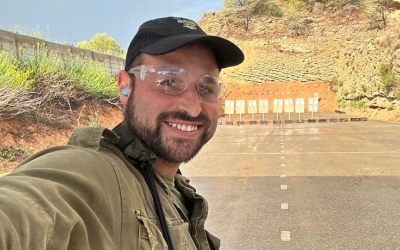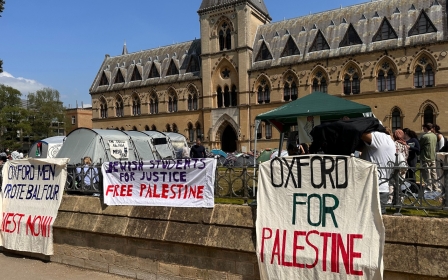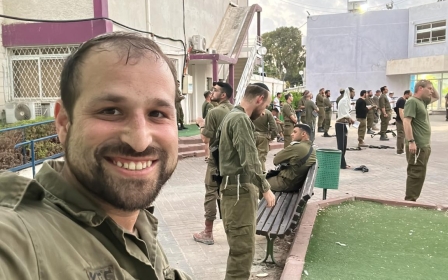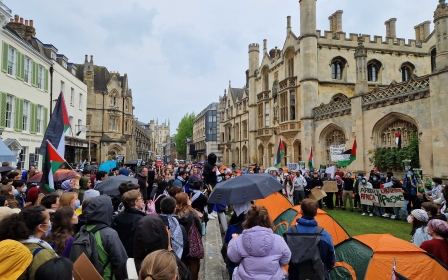UK government to fund chaplaincy service that 'advocates for Israel' on campuses
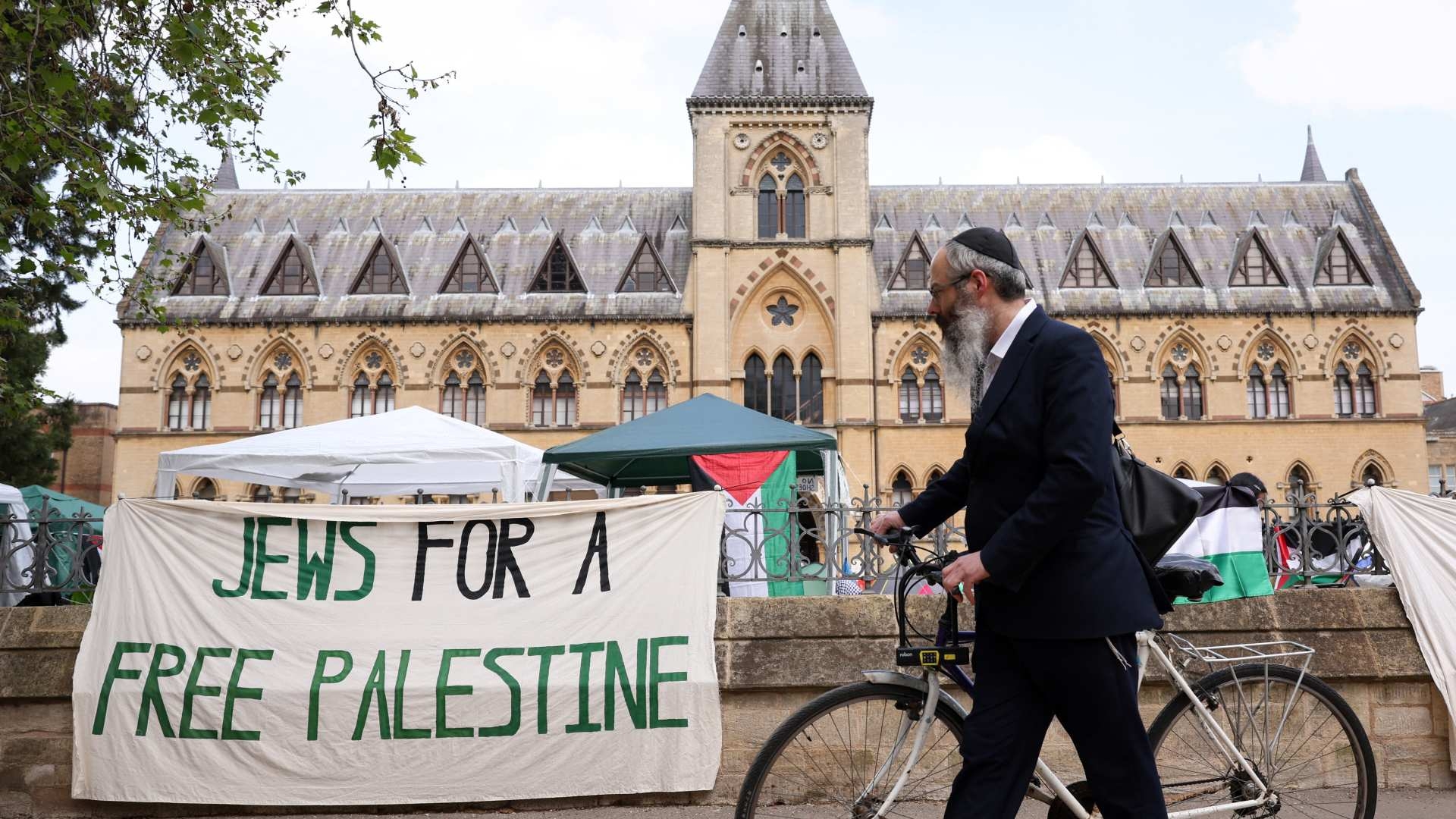
The UK government is to give £500,000 ($624,725) to a Jewish university chaplaincy service that requires its chaplains to be proactive advocates for Israel as part of new measures announced on Thursday to tackle antisemitism on campuses.
The announcement by Prime Minister Rishi Sunak's office followed a meeting between Sunak and university leaders after students at a growing number of British universities set up encampments to oppose the war in Gaza and support Palestinian rights.
"Universities should be places of rigorous debate but also bastions of tolerance and respect for every member of their community," Sunak said in a statement.
"A vocal minority on our campuses are disrupting the lives and studies of their fellow students and, in some cases, propagating outright harassment and antisemitic abuse. That has to stop."
The University Jewish Chaplaincy (UJC) is a registered charity that operates in dozens of universities across the UK. It provides chaplains and chaplaincy couples and says they are "there for Jewish students of all backgrounds and affiliations".
New MEE newsletter: Jerusalem Dispatch
Sign up to get the latest insights and analysis on Israel-Palestine, alongside Turkey Unpacked and other MEE newsletters
The UJC is also advising ministers on new guidelines for tackling antisemitism in higher education.
But earlier this year Middle East Eye revealed that the UJC listed being a "pro-active Israel advocate" among essential requirements for candidates in job descriptions for vacant chaplaincy posts in Brighton, Bristol and Glasgow.
The UJC did not respond to MEE's request for comment, but a “job opportunities” page on the UJC’s website was removed after MEE contacted the organisation.
Alongside providing pastoral care to Jewish students, the UJC says its chaplains speak to university officials, work closely with clergy for other religions, and get involved in interfaith activities on campuses in their regions.
The organisation has previously received public money through the government's furlough scheme to support organisations through the Covid-19 pandemic, according to annual reports filed to the Charity Commission.
UJC under scrutiny
The role of the UJC came under scrutiny after it emerged that one of its chaplains, Zechariah Deutsch, who works at the University of Leeds and a number of other universities, took leave last year to serve as a reservist in the Israeli army after the start of the war with Hamas in Gaza.
Deutsch, who is an Israeli national, sent a series of videos to students via a chaplaincy WhatsApp group, in which he defended his decision to return to Israel to join the army.
This prompted some students to protest and call for his resignation. Deutsch has not responded to requests from MEE for comment.
These protests escalated last month after it emerged that Deutsch was back at Leeds University. A building used by the university’s Jewish Society was daubed with pro-Palestine graffiti.
The University of Leeds condemned these events as "antisemitic attacks" and said it was working with West Yorkshire Police and the UJC to "ensure Deutsch continues supporting Jewish students at Leeds and other universities he serves in the Yorkshire region".
Deutsch and his family were reported to have gone into hiding after receiving death threats. The chaplain is understood to have returned to the campus on 26 February to attend a demonstration against antisemitism organised by the university Jewish Society and the Union of Jewish Students.
The incident also prompted the government to intervene, with higher education minister Robert Halfon meeting Deutsch and the Leeds interim vice-chancellor, and accusing universities of “turning a blind eye to antisemitism”.
He said the government would issue new guidelines on tackling antisemitism in universities after consultation with organisations including the UCJ, and would create a new post of expert adviser on antisemitism in higher education.
Middle East Eye delivers independent and unrivalled coverage and analysis of the Middle East, North Africa and beyond. To learn more about republishing this content and the associated fees, please fill out this form. More about MEE can be found here.


